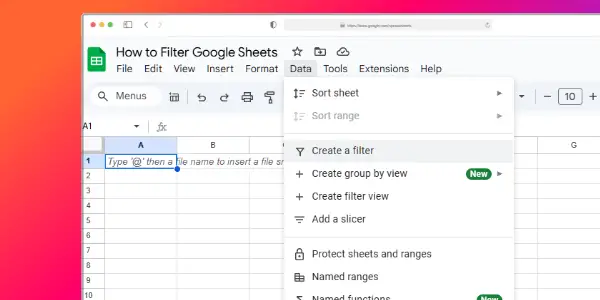What’s a winning combination for success in today’s business world? The triumvirate of Product, Program, and Project Managers.
Each holding a unique role, yet their collaborative efforts streamline project execution and coordination, producing remarkable outcomes.
Product managers, specifically, focus on a specific product or product line, while program managers execute multi-team or multi-department initiatives with close coordination.
The synergy of their diverse portfolio responsibilities results in a winning combination for business success.
Why Distinguish Between These Management Roles?
Is the distinction really necessary? Absolutely! Clarity in responsibilities and a well-defined role are highway signs on the road to productivity.
Delicate differences in these positions determine how your organization thrives. Put simply, it’s about placing the right pieces in the right places on your business chessboard.
Deep Dive into Each Management Role
The Role and Responsibility of a Program Manager
A Program Manager is the conductor of the organization’s symphony, ensuring each instrument (AKA project) is in tune.
Enacting diligent oversight, this role is all about formulating strategy, mastering program execution, and acting as a mentor to project teams.
As if operating a bot program, they identify interconnected dependencies and nurture them towards harmony. Let’s not forget about their role as the company’s eagle-eyed hawk, monitoring progress towards results with a keen eye on the program lifecycle.
Picture them as the orchestral master, harmonizing various projects to meet the organization’s goals. It’s not just about making strategic plans, but also landing a solid impact through high-profile program execution.
The Task and Identity of a Project Manager
Meet the Project Manager: tactical warrior and progress driver, focusing on accomplishing singular, time-bound projects.
Adept at task completion and keeping a firm grip on project deadlines, they are your go-to resource optimizer, communication streamliner, and risk mitigator.
Their prime duty involves delivering results with precision, seamlessly managing project execution, and ensuring that team resources are efficiently utilized.
Amid chaos, they provide a guiding light, keeping team members informed and motivated while ensuring project goals are met or even exceeded. They’re the get-it-done leaders who turn concepts into solid tasks and, eventually, tangible output or deliverables.
The Functions and Characteristics of a Product Manager
Allow me to introduce the Product Manager – the voice of the customer inside the organization. They function as the bridge between business and consumers, integrating waterfall development methodologies while prioritizing the product’s functionality.
Known to be custodians of customer’s needs, they defy standard ‘feature factories’ to create value. Grounded in market realities, they scout out competitive landscapes, thoroughly understanding user needs, and subsequently develop a product vision.
They’re the skilled mediators between business aspects, technological advancements, and user experience, prioritizing features, defining releases, and meticulously crafting the product roadmap.
Always mindful of the product lifecycle, they ideate, plan, build, deliver, and iterate on products with a keen eye for the market’s pulse. These astute strategists are the indispensable pioneers steering your product’s evolution. No wonder we aptly call them the “mini-CEOs”!
Key Differences: Program vs Project vs Product Management
Comparison by Scope and Strategic Approach
How about we play a game of “Spot the Difference”? The strategy of a Program Manager is like viewing the world from a helicopter – focusing on multiple projects to drive the overall program’s outcome. On the other hand, Project Managers are on the ground, dealing with the grit to deliver one-off projects successfully.
As for scope, too, there’s a stark difference. The scope of a Product Manager is product-centric – they’re the wheel that guides the product’s journey. In contrast, Program Managers own a broader picture. They’re juggling balls in the air, ensuring that several distinct projects align to fulfill the business strategy.
This quick comparison aside, bear in mind: it’s not a question of which role is more important. Rather, it’s how they uniquely contribute towards enterprise success.
Differentiating Salary Expectations
Why did the dollar sign catch your eye? Salary differences can be a deciding factor when choosing a career path. Project Managers, in January 2023, fetched an average annual salary between $83,965 and $136,901 in the US. Program Managers, although tighter in range, generally sat a little higher, averaging between $70,512 and $143,850.
But before you jump ship, remember this: salaries may vary based on factors such as location, experience, and education. And truth be told – the biggest reward? Passion for what you do and a role that aligns with your strengths! Money may buy you a fine dog, but only love can make it wag its tail, after all!
Transforming Skills from One Role to Another
From Product Owner to Product Manager: A Leap in Skillset
Ever pondered moving from Product Owner to Product Manager? It’s a different ball game that requires a unique set of expertise.
For starters, expand your vision, as Product Managers look beyond the backlog or the scrum. They are plugged into the market, utilizing their project management expertise to constantly synthesize information from customers, competitors, and stakeholders into a consumable, strategic product vision.
Similarities surely exist in their functions, as their roles overlap, particularly in the strategic visioning and execution of tasks.
And remember, knowing your customer is vital in this new role. Data-driven insights, user empathy, and a strong customer focus become your guiding compass.
This calls for a transition from simly managing tasks to providing holistic guidance. It’s about taking your skills from a micro to a macro level. Buckle up for the journey and embrace the opportunities of role overlap and shared skills.
The Transition from Software Developer to Project Manager
Can a Software Developer morph into a Project Manager? Absolutely! The transition is similar to switching from playing in a tech band to leading a symphony at one of the big tech companies.
As a developer, you would have been engrossed in writing sound code. However, as a project manager in the tech industry, responsibilities broaden to overseeing the entire project orchestra, from hardware to software specifications.
Your skillset expands to risk management, resource allocation, maintaining project schedules, and fostering team collaboration. Suddenly, you are the one accountable to ensure the project gets completed to specifications and delivered on time.
Yes, the role transforms drastically. But, can you guess what remains constant? Your technical acumen – a factor of tremendous value in this new role, lending credibility to your leadership.
This transformation yields a more profound understanding of issues and obstacles, from software bugs to hardware compatibility and performance issues. So, shouldn’t you embark on this transformational journey, navigating from development to project management in the tech industry?
Making the Right Choice for Your Needs
Assessing Business Requirements: Who is Best for You?
Choosing the right manager for your team is like fitting puzzle pieces together. The choice boils down to this: what do you need right now and in the immediate timeline? Could we be discussing a series of interconnected projects that necessitate a comprehensive overview? That’s when a Program Manager steps in.
Perhaps, there is a high-stakes project that needs skilled workflow management? Enter the Project Manager. They manage tasks converting ideas and initiatives into a concrete plan. They develop the project timeline ensuring deadlines are met, efficiently distribute resources including staff and budget, set metrics, monitor task completion, and provide regular updates to involved stakeholders.
Or maybe your product requires a steadying hand for guiding it towards user satisfaction and value generation? Your answer here is a Product Manager.
Recognizing your team’s requirements can assist in determining which leadership style fits best. This involves understanding your business requirements and corresponding them to the appropriate role. Simple, yet effective. Good luck!
Questions to Ask when Hiring a New Manager
Every hire is a vital cog in the machine of your organization. So, how do you ensure you’ve got the right one? Here goes:
For a Program Manager, gather feedback by asking:
- Can you describe how you would resolve a conflict between two teams?
- How might you prioritize multiple critical projects?
- Can you detail how you contributed to the success of your most recent program?
For a Project Manager, inspect relevant artifacts by interrogating:
- How would you handle a project falling behind schedule?
- What metrics matter to you most in assessing project progress?
- Can you share a successful project you’ve led and what tangible artifacts made it successful?
And for a Product Manager, delve into their understanding of problem-solution space by quizzing:
- Can you describe your view of a good user interface?
- How would you identify and address user pain points?
- Can you share a company that provides a great user experience and why you consider their vision and strategy effective in the pursuit of a shared goal?
These questions aren’t about finding perfect answers, but about revealing their approach, their problem-solving capacity, their passion for serving their role, and importantly their skill in using feedback and artifacts to achieve quality outcomes. Happy hiring!
Wrap Up: Towards Better Collaboration
Bridging the Gap: Effective Cross-functional Collaboration
Is it possible for these heavyweight roles to duke it out in harmony? Most certainly!
In the ring of cross-functional collaboration, effective communication stands as the undefeated champ. The secret? Three touchpoints:
- Product vision and strategy: Both roles need to be crystal clear on this.
- Release planning: Collaborative dialogue at this point, essential!
- Product Architecture: Ah, another point to harmonize understanding.
Remember, this isn’t about trying to meld the roles into one. It’s about acknowledging differing perspectives and walking in each other’s shoes, enabled by transparent communication. After all, three heads are better than one, especially when they work in harmony!
Good Product Thinking as a Collective Effort
Good product thinking. This is not a solo race, it’s a team marathon! Success in today’s businesses is about collective effort more than individual genius. Combine the cross-functional prowess of Product, Project, and Program Managers, blend in a pinch of creativity, stir in some strategic vision, and voila! You’ve got a recipe for success.
But remember, collaboration is your chef’s secret. So, here’s the deal: Build a common understanding, foster a culture of shared responsibility, and promote empathy among your trio. And watch your team sprint towards that finish line. It’s the magic of collective effort!
How Does Program Management Differ from Project and Product Management, and Which Role is Right for Me?
Program management involves coordinating multiple related projects to achieve strategic objectives. It focuses on the big picture, ensuring all projects align with overall goals. If you enjoy overseeing interconnected initiatives and have a knack for strategic thinking, understanding program management concept could lead you to the right role.
FAQs
What skills do I need to transition from a ‘Product Owner’ role to ‘Product Manager’?
Making the leap from Product Owner to Product Manager? Indeed, it’s all about evolving into an agile being, converting ideas and initiatives into solid tasks, and thinking more strategically while focusing on the big picture. Let’s dive into the necessary skills:
- Market Knowledge: Deeply understand the competitive landscape and consumer needs.
- Data Analysis: Use data as foundation for your decisions, developing a project timeline to meet the deadline.
- Strategic Vision: Direct your product towards the North Star and monitor the completion of milestones using appropriate metrics.
- Leadership: Not only communicate well and motivate your team, but also adeptly distribute resources, including manpower and finances.
Remember that a Product Manager is less of a backlog junkie and more of a visionary leader adept in reporting and providing updates to stakeholders. Time to quell those product failures and tight deadlines! Ready for the agile leap to completion?
Do product managers require coding skills?
Does a Product Manager need to be a code whiz? Not necessarily. But, a fundamental understanding of the technologies your product relies on can be critical in today’s tech-driven world. For instance, if you’re working with the Microsoft Planner, having a basic knowledge of its integration and function can be a game-changer.
Knowing the basics of coding can help you empathize with your development team. It also enables you to have meaningful and more productive conversations about product development and project management software tools your team employs. However, remember, you don’t need to build the product – you just need to understand how it’s built. So, hello Python or Java basics, goodbye deep coding trenches!
In a nutshell, being tech-savvy is a plus, not a must. But understanding the ‘how’ of your product is priceless! For more detailed insights, follow our LinkedIn page and check out our blog where we regularly post interesting articles on related topics.





